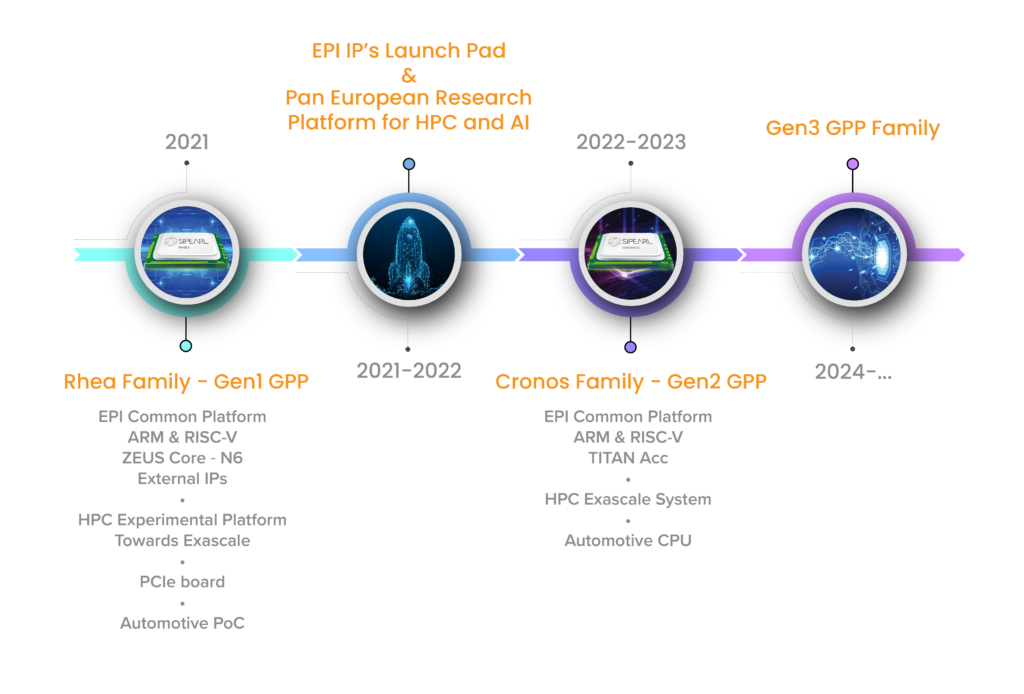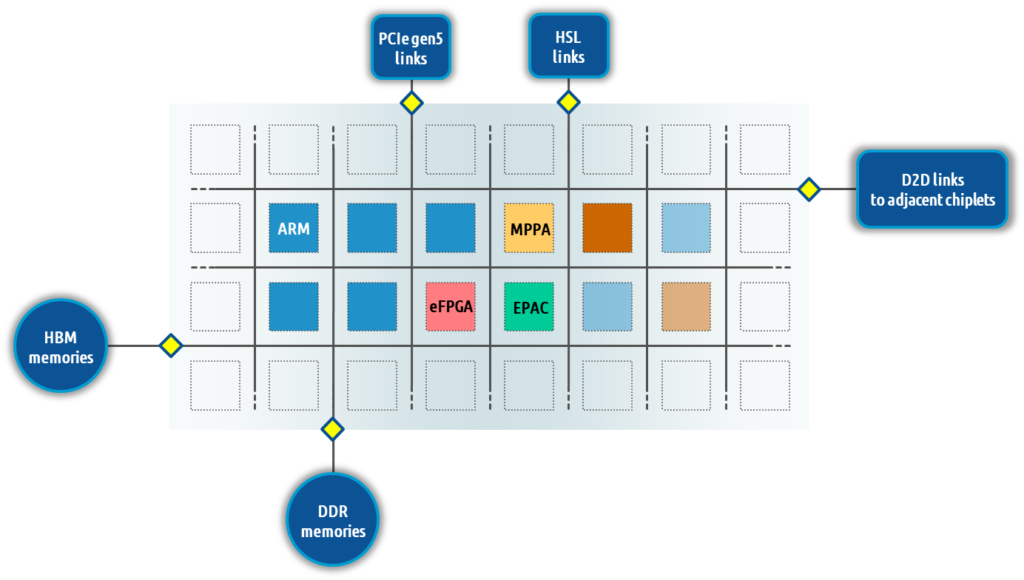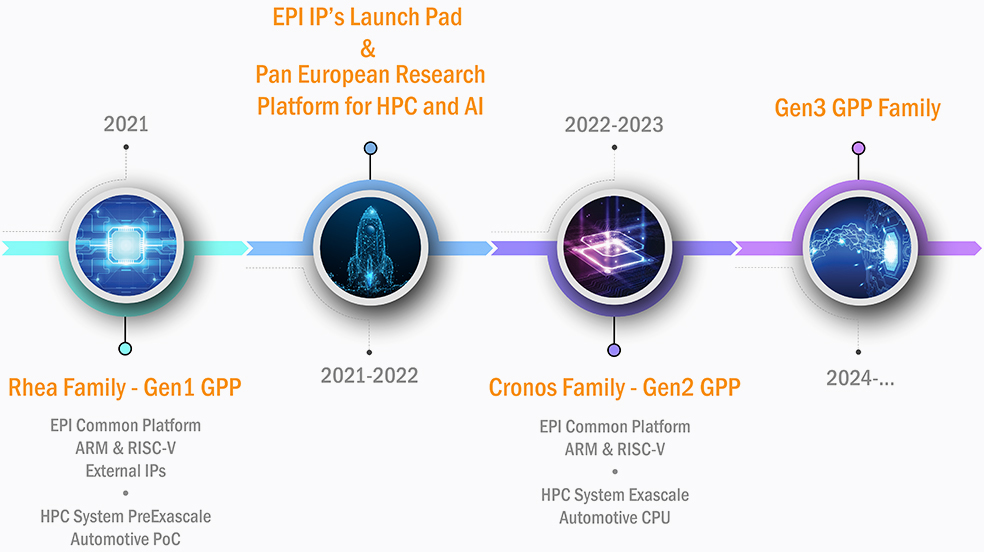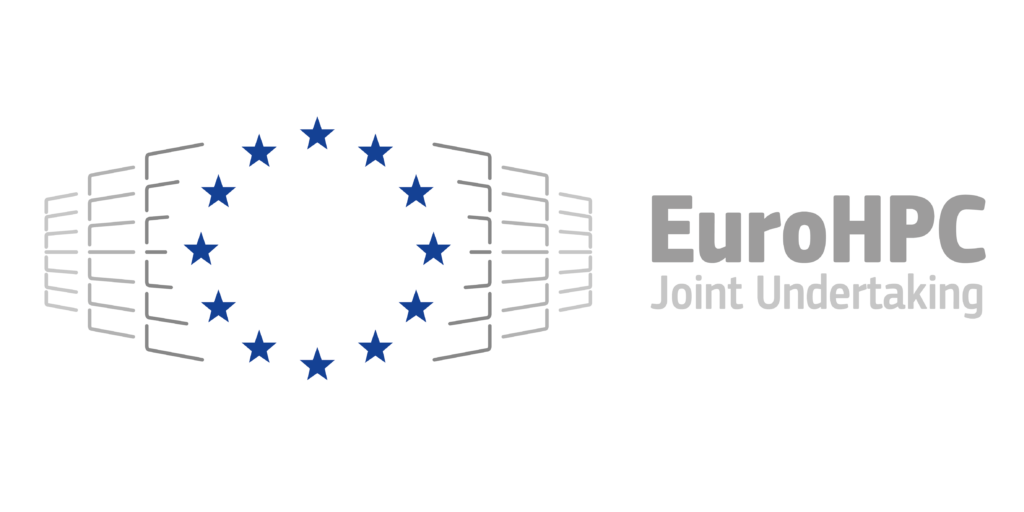The project is finishing its first year with introduction of a new EPI Common Platform, an updated roadmap and presence at key events
The European Processor Initiative (EPI) https://www.european-processor-initiative.eu/, a project with 27 partners from 10 European countries, with the goal of helping the EU achieve independence in HPC technologies, is approaching the closure of the first year in its three-year cycle.
During that time, the consortium has submitted several architectural designs to the European Commission and is now ready to show its updated roadmap to the public.

Figure 1. EPI Roadmap
The first-generation chip family, named Rhea, will include Arm ZEUS architecture general purpose cores and prototypes of high energy-efficient accelerator tiles: RISC-V based (EPAC), Multi-Purpose Processing Array (MPPA), embedded FPGA (eFPGA) and cryptography HW engine. First Rhea chips will be fabricated in N6 technology aiming at the highest processing capabilities and energy efficiency.
The Rhea chips will be integrated into test platforms, both in workstations and supercomputers in order to validate the hardware units, develop the necessary software interfaces, and run applications. Rhea aims to be the European processor for several experimental platforms towards exascale HPC and future automotive designs.
Today we also announce our long-term commitment to our recently introduced initiative to harmonize the heterogeneous computing environment by defining a common approach: the EPI Common Platform (CP). The EPI CP is in early development but will include the global architecture specification (hardware and software), common design methodology, and global approach for power management and security, in the future.
The CP in the Rhea family of processors will be organized around a 2D-mesh Network-on-Chip (NoC) connecting computing tiles based on general purpose Arm cores with previously mentioned accelerator tiles.

Figure 2. EPI Common Platform
A common software environment between heterogeneous computing tiles will harmonize the system, acting as a common backbone of IP components for IO connection with the external environment such as memories and interconnected or loosely coupled accelerators.
With this CP approach, EPI will provide an environment that can seamlessly integrate any computing tile. The right balance of computing resources matching the application needs will be defined through the carefully designed ratio of the accelerator and general-purpose tiles.
These important developments and more will all be presented at high-profile events the Initiative is attending, announced on EPI’s web: https://www.european-processor-initiative.eu/events/.
We invite all interested parties to visit our exhibition booths at upcoming events, with special focus on the Supercomputing Conference in Denver, USA (Nov 17-22, 2019), booth #895, and the European Forum for Electronic Components and Systems in Helsinki, Finland (Nov 19-21, 2019).
Meet us there to discuss EPI’s future!
The European Processor Initiative (EPI), crucial element of the European exascale strategy, delivers its first architectural design to the European Commission and welcomes new partners
Almost six months in, the project that kicked off last December has already delivered its first architectural designs to the European Commission, thus marking initial milestones successfully executed. The project that will be the cornerstone of the EU’s strategic plans in HPC initially brought together 23 partners from 10 European countries, but has now welcomed three more strong additions to its EPI family.
EPI consortium aims to bring a low-power microprocessor to the market and ensure that the key competences for high-end chip design remain in Europe. The European Union’s Horizon 2020 program funds this project with a special Framework Partnership Agreement. The initial stage is a three-year Specific Grant Agreement, which lasts until November 2021.
The EPI consortium includes experts in all the relevant areas for such a major undertaking: the High-Performance Computing research community, major supercomputing centres, the computer system, automotive, and silicon industry, as well as the potential scientific and industrial users. Through a co-design approach, EPI will design and develop the first European HPC System for the HPC and automotive markets through several major streams of operation:
- HPC general purpose processor
- Accelerator
- Automotive platform
The Initiative is part of a broader strategy implemented by the European Union via its legal and funding entity – the EuroHPC Joint Undertaking (JU). The JU will enable pooling of the Union’s and national resources on HPC to acquire, build, and deploy in Europe the most powerful supercomputers worldwide.
EPI is one of the cornerstones of this EU HPC strategic plan. Drawing on the expertise of the partners in the consortium, EPI aims to bring a low-power microprocessor to market. It will ensure that the key competence of high-end chip and system design remains in Europe, a critical requirement for many application areas. Thanks to such new European-developed technologies, European researchers from academia and industry will be able to access HPC systems at exceptional levels of energy-efficient performance. As recognized by high-level EU officials, EPI will contribute to Europe’s scientific leadership, industrial competitiveness, engineering skills and know-how – not to mention society as a whole.
“European Processor Initiative will deliver key technologies to the new European HPC strategic plan for an independent and innovative European high-performance computing and data ecosystem. Energy efficient high-performance families of EPI processors will include most advanced general-purpose and accelerator cores that will deliver unprecedented processing capabilities, enabling EU researchers from academia and industry to most efficiently address global challenges. The business sustainability of the initiative is supported by carefully balanced target markets, with primary focus on exascale HPC/AI and automotive markets,” said Jean-Marc Denis, EPI Chairman of the Board.
“It is a privilege to lead this consortium and enable the creation of a new big player in the field of advanced semiconductors in Europe. We have the best teams, and a huge portfolio of expertise on board from deep node submicron, co-Design, computer science, to HPC, and automotive end-products. We expect to ship from 2021 our 1st high class and high-performance solution,” said Philippe Notton, General Manager of EPI.
“Acceleration is crucial to continued performance gains while reducing power consumption in computing. In EPI, the first accelerator will begin from RISC-V technology to deliver two unique vector and artificial intelligence accelerators for HPC and AI, since future supercomputers will be mostly heterogeneous; the second accelerator, based on Kalray’s IP, will lead the path to deterministic automotive computation. Both are offering a European solution to future global converged (HPC and AI) computing needs,” said Professor Mateo Valero, Director of Barcelona Supercomputing Center.
“The combination of general-purpose processors, hardware accelerators, security modules, and further IP modules on a system-on-chip is one of the key success factors for realizing a high-performant and energy-efficient automotive computing platform for autonomous driving and connected mobility”, said Matthias Traub, manager of electric/electronic architecture at BMW Group Research.
EPI will use a holistic approach to refine the system architecture and its component specifications. All aspects of the solution, and their interactions, will be considered and tackled simultaneously, taking a co-design approach:
- hardware platform architecture and components
- system and runtime software (OS, middleware, developers kit, compilers and libraries, etc.)
- HPC end-user applications
This approach will allow the consortium to meet the following goals:
- developing low-power microprocessor technology to be tentatively included in a European pre-exascale and subsequently exascale systems
- guaranteeing that a significant part of that technology is European,
- ensuring that the application areas of the technology are not limited only to HPC, but cover other areas such as the automotive sector and the data centers. Thus, ensuring the overall economic viability of the initiative. One specific objective for the automotive sector is to develop customized processors able to meet the performance needed for autonomous cars.

EPI plans to deliver two generations of processor families, with future families to follow. The architectural design of EPI processor families will ensure that individual processors address requirements specific to a particular market segment.
Full list of participating partners can be viewed here.

